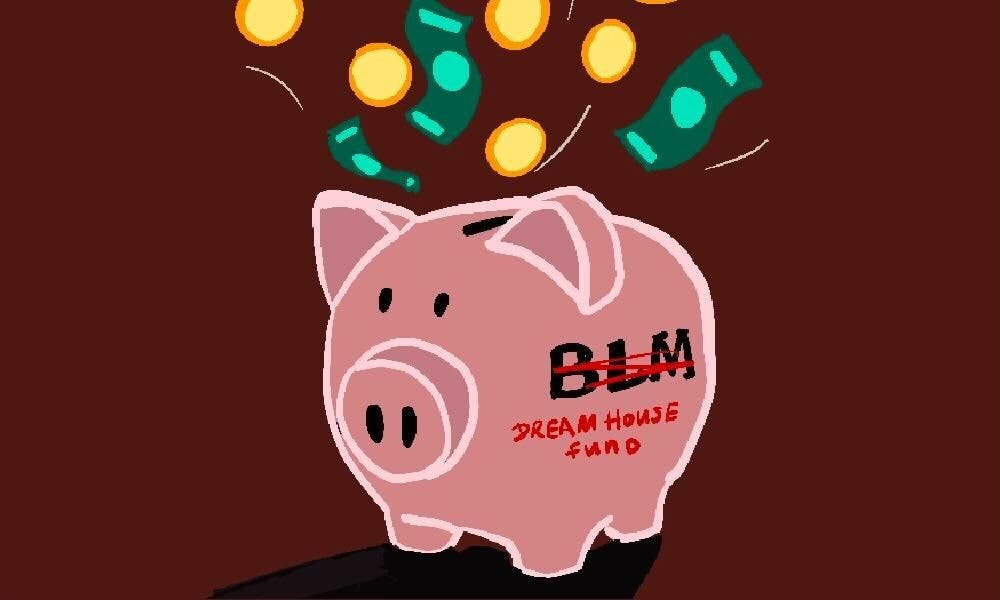On April 7, New York Magazine’s Sean Campbell published a story revealing that the Black Lives Matter Global Network Foundation (BLMGNF) had purchased a $6 million home and failed to disclose it to the public. Campbell's article includes real internal strategy memos sent within the organization, with team members discussing how they could answer inquiries about the usage of the house without raising suspicion, highlighting the covert nature of this purchase. Though many donors and supporters believed their money was going straight to families impacted by police brutality or activists fighting for BLM’s anti–racist cause, New York Magazine’s article shed light on the opacity of online donations to nonprofit organizations.
With social media, web pages, and crowdfunding platforms like GoFundMe, donating to causes that you support has never been easier. In fact, BLMGNF made over $90 million in 2020 alone. But when organizations or individuals aren’t transparent about the usage of funds, how can you be sure your donation is actually helping anyone?
This isn’t the first time the finances of those involved with the Black Lives Matter movement have come under criticism. Imani Perry of The Cut interviewed Samaria Rice, mother of Tamir Rice, a 12–year–old boy killed by police in 2014. In this interview, Rice expressed her frustration at those profiting off Black death, saying that she wished that the BLM movement would stop using her son's name to further their cause.
According to Rice, controversial political activist Shaun King raised thousands of dollars using her son’s name—but she only saw a fraction of those profits. "I ain’t never talked to Shaun King a day in my life … Shaun King raised all that money [for Tamir] and sent me a $60,000 check," she said. She had seen firsthand how King and other big–name activists associated with the movement have secured “book deals and movie deals,” while people like her, who have lost family members due to racist policing, have been left behind by the very movement created to support them.
Part of being a social justice activist means holding leaders accountable. It’s undeniable that the Black Lives Matter movement has brought enormous visibility to the effort to end police brutality and racism in America, but this does not mean the organization itself is above criticism.
Activists and their organizations have not been the only ones to profit from Black death—companies have been profiting from it as well.
During the racial justice protests in the summer of 2020, supporters were told to donate and give back to the organizations that made change possible. However, many supporters later took to social media to voice their frustration over a lack of clarity around these fundraising campaigns and where the money ultimately went. While information was available in fine print, it was not placed front and center, and many supporters felt deceived as a result. For example, the viral “Justice for George Floyd” petition garnered 19 million signatures. After signing, supporters were encouraged to donate money in order to “get the petition on the agenda.” This petition broke petition promotion company Change.org's records and helped spur nationwide interest in the cause, but none of the money made went to Floyd’s family, Black activist organizations, or the creator of the petition.
Instead, it all went to Change.org.
The commodification of Black death is often discussed in the context of more visibly self–serving “activist” practices, like creating T–shirts where little to none of the profit goes to genuine activist organizations. However, incidents such as King's disingenuousness or the secret purchase of the "BLM House" point to the ways in which commodification can occur even more covertly.
As Perry noted in her profile of Samaria Rice, “Little of the money circulating within [the Black Lives Matter] movement ends up with the families of the victims of police killings. The vast majority goes to a professional class of spokespeople: organizers, writers, and academics. And the killings continue.”
The bigger social justice organizations become, the less they become about on–the–ground activism and the more they mirror large, professionalized corporations. Shady internal messages and potentially corrupt leadership detract from the ultimate purpose of Black Lives Matter, which is to bring awareness to the enduring problem of racism in America. Oftentimes, the uptick of performative activism in social media, or the ability for activism and “change” to be measured in clicks or retweets, further distances the goals of a movement from the people it seeks to help.
We need big organizations for public visibility and interest, which most directly lead to policy changes. But we shouldn’t forget the importance of grassroots activism and we should especially not forget the families of the deceased individuals that social movements build themselves around. Even if the internet makes donating easier, it’s still an organization’s or company’s responsibility to be transparent with where the influx of supporters' money goes. The commodification of Black death happens at all levels of activism, and we should be more ready to critique it.
Correction: a previous version of this article stated that supporters were not informed of the nature of Change.org's fundraising campaigns, which we have since determined to be inaccurate. While there was information provided, it was in fine print, leading many supporters to miss it. The article has since been updated to reflect this change. Street regrets this error.

